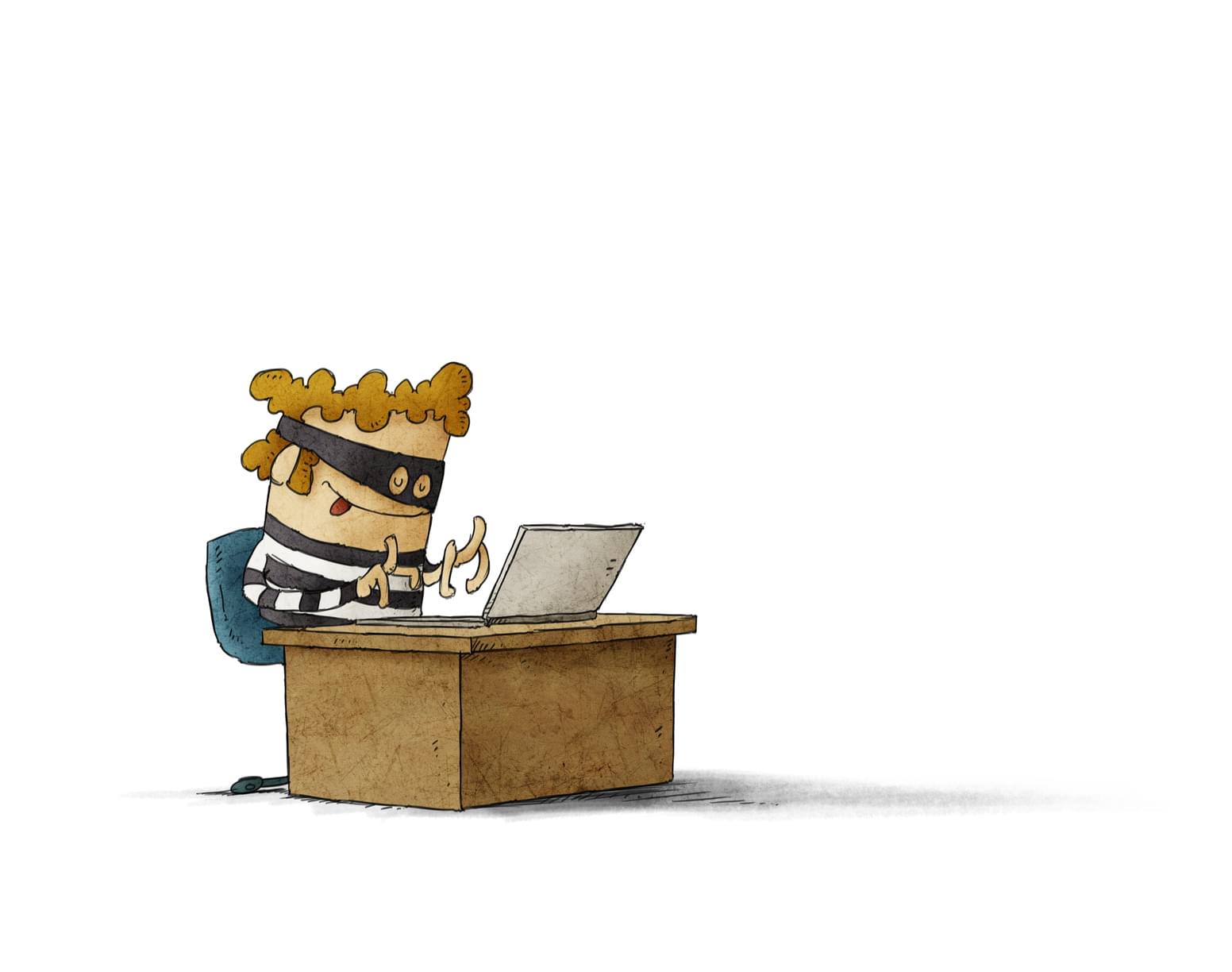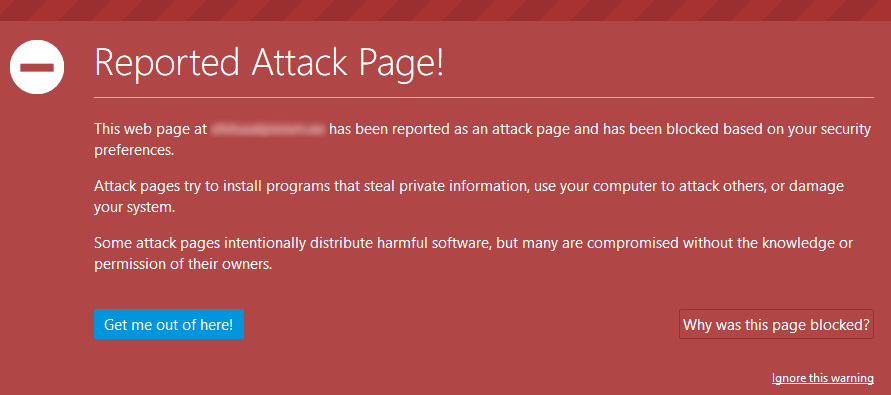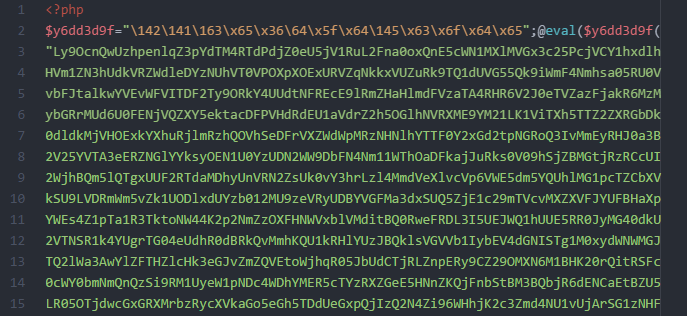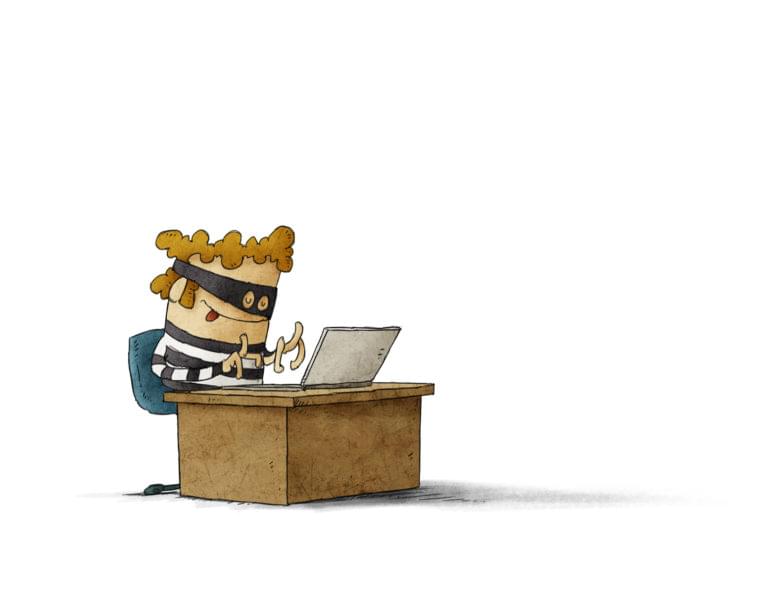This post was originally published by Oliver Sild on Medium and reposted here with his permission. If you like it, why not go over there and give him some ❤️?

You are an entrepreneur, manager or a marketing pro responsible for the website in a company which is simply meant as a digital business card to introduce the company, its services, and the latest news. Not including any state secrets, right.. so why are they still doing this?

Making money (a lot of money).
Yes, even a small website hack can generate a substantial amount of money. Cyber criminals can make money with your compromised website by distributing malware, SEO spam, and even set up e-mail spam servers and phishing sites. Money is obviously the most common motivation behind the attacks.
SEO Spam
 Screenshot of a pharma-scam from an infected website.
Screenshot of a pharma-scam from an infected website.
This type of spam is making a lot of money. Injecting backlinks and spam to a legitimate sites remains one of the most profitable and popular types of website attacks.
After the website has been compromised, a malicious backdoor will be uploaded to the website which gives the attacker the ability to invisibly redirect your visitors to their scam sites any time they want.
Apart from generating money for the hacker, your website gets a penalty from search engines, which will ruin your SEO.
The scam has been traced back to organized crime syndicates operating in what is estimated to be a 431 billion dollar, and growing, market. Its scale, and the danger counterfeit drugs pose to the public health, prompted repeat action from FDA, Interpol, among others. — Incapsula
Malware
 Malware sample from a hacked website.
Malware sample from a hacked website.
It’s possible to have your operating system, browser, plugins, and applications exposed to exploits looking for vulnerabilities just by visiting an unsafe website. SophosLabs sees tens of thousands of new URLs every day containing drive-by downloads. — Sophoslabs
Yes, it’s the worst case scenario, but your website can be used to infect visitors with ransomware. Between 2014 and 2016 over 100 000 WordPress and Joomla! sites were redirecting visitors to the Neutrino Exploit Kit, which tried to penetrate the browser on the visitor’s computer and when being successful, infected the operating system with CryptXXX ransomware.
It’s also a billion dollar market: http://www.nbcnews.com/tech/security/ransomware-now-billion-dollar-year-crime-growing-n704646
It’s growing, too: according to the latest volume of the Internet Security Threat Report:
- $1,077 = Average amount of money demanded per person in 2016
- $294 = Average amount of money demanded per person in 2015
There are many other ways to make money with malware. For example, hacked websites can be connected into a large botnet, which then can be used to provide a DDoS service to attack other sites and web services.
And Then There Are These Guys…
 Angry penguin on a Russian website.
Angry penguin on a Russian website.
Vandals, script kiddies, defacers who test their skills and love to show it off on hacking forums and compete with the fanciest defacement. Luckily, these kinds of attacks are usually the easiest to detect and fix.
You can find defaced websites on mirror sites, where defacers actively post their new victims.
Here’s the reality! Do you know what they all have in common?

Attacks are automated! This is a critical element as there’s a common misconception on how attacks are being executed.
Here’s an Example of How Your Website Gets Hacked:
Hacker with evil intentions begins with making a list of targets by country and special fingerprinting (Google Dorking). He can use (automated tools available) Google to find every website in the Czech Republic with the default WordPress page “Hello World” like this:
site:.cz inurl:/hello-world/. See for yourself.Now, with the list of over 5000 WordPress sites, there are many possibilities. He could start fingerprinting (automated) specific vulnerable (oudated) software and try to bruteforce the admin account with different combinations (also automated). This is the step where he can already have the access to a lot of sites (most of the sites are not frequently updated and lack security measures).
As the last step, it’s all about infecting and using the site as the attacker wishes (khm.. also automated).
Everything Is Automated – the Attacker Might Have Hacked Your Website without Ever Visiting the Site or Seeing It with Their Own Eyes.
And yes, you should worry about it! Keep in mind that similarly to the abandoned buildings that get freaky graffiti and tags in dark corners — it’s just a matter of time when your website will get defaced and infected with malware if you don’t have basic maintenance, security measures and proper monitoring in place.
Ok, ok.. But how big is the problem?
To find out, who better than Google to say what’s going on on the web:
Here’s what Google released on their blog at the end of march 2017:
We’ve seen an increase in the number of hacked sites by approximately 32% in 2016 compared to 2015. We don’t expect this trend to slow down. —Google
Since there is almost a 1/3 chance that your website is running on WordPress, you should already know that 2017 didn’t even start with a positive tone. Even WiFi routers can hack your website.
I won’t get into a lot of statistics here, but if you have a WordPress site, you can get some tips from my previous article.
Your website is the face of your company on the web, protect it!
Loved the article? Help us spread the awareness by sharing it and heading over to the Medium original to give it some love – there’s even a free website monitoring trial waiting for you there!
Stay safe!
Frequently Asked Questions (FAQs) on Website Hacking
What are the common signs that my small business website has been hacked?
There are several signs that your website may have been compromised. These include unexpected changes in your website content, sudden drop in website traffic, browser or Google warnings when visiting your site, and receiving an alert from your web hosting provider. Additionally, if your website starts sending out spam emails or your site’s performance slows down significantly, these could also be indicators of a potential hack.
How can I protect my small business website from hackers?
There are several measures you can take to protect your website from hackers. These include keeping your website software and plugins updated, using strong and unique passwords, implementing a reliable security plugin, regularly backing up your website, and using a secure hosting provider. Additionally, consider using HTTPS for your website and regularly scanning your website for vulnerabilities.
What is a pharma hack and how can I clean it?
A pharma hack is a type of SEO spam where hackers inject malicious code into your website to display pharmaceutical ads. To clean a pharma hack, you need to identify and remove the malicious code, restore any modified files, and strengthen your website security to prevent future attacks. It’s recommended to seek professional help if you’re not comfortable doing this yourself.
What should I do if my website gets hacked?
If your website gets hacked, the first step is to identify the breach and assess the damage. Then, remove the malicious code or restore your website from a clean backup. Update all your passwords and notify your users if their data was compromised. Finally, strengthen your website security to prevent future attacks and consider hiring a professional to help with the cleanup and recovery process.
How do hackers gain access to websites?
Hackers can gain access to websites through various methods. These include exploiting vulnerabilities in website software or plugins, using brute force attacks to guess passwords, and through phishing attacks where users are tricked into revealing their login credentials. Additionally, hackers can also gain access if they manage to compromise the web hosting server.
How can I recover my website’s SEO after a pharma hack?
Recovering your website’s SEO after a pharma hack involves several steps. First, you need to clean up the hack and remove all malicious content. Then, update your website software and plugins to their latest versions. Submit a reconsideration request to Google once you’re sure your website is clean. Monitor your website’s performance and SEO rankings closely and consider seeking professional help if needed.
Can a website be completely safe from hackers?
While it’s impossible to guarantee 100% security, you can significantly reduce the risk of your website being hacked by implementing strong security measures. These include using a reliable security plugin, regularly updating your website software and plugins, using strong and unique passwords, and regularly backing up your website.
What is the role of a web hosting provider in website security?
A web hosting provider plays a crucial role in website security. They are responsible for securing the server where your website is hosted. A good hosting provider will offer features like regular backups, firewalls, malware scanning, and 24/7 monitoring to help protect your website from hackers.
How can I monitor my website for potential hacking attempts?
There are several tools and services available that can help you monitor your website for potential hacking attempts. These include security plugins that offer real-time monitoring, web application firewalls, and third-party monitoring services. Regularly reviewing your website logs can also help you identify any suspicious activity.
What are the potential impacts of a website hack on my small business?
A website hack can have serious impacts on your small business. These include loss of customer trust, damage to your brand reputation, potential legal liabilities, and financial losses due to downtime or loss of sales. Additionally, if your website is blacklisted by Google due to a hack, it can significantly impact your SEO rankings and website traffic.
 Oliver Sild
Oliver SildCo-founder of WebARX



